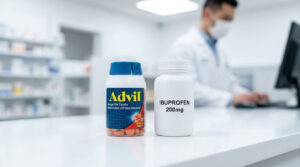Tuberculosis (TB) has been inflicting humankind and beyond for centuries now. It has spread a terror through the ages and has been labeled with different names by many over and again. Mycobacterium tuberculosis is the causal organism behind this dreaded disease. DNA of this bacterium has been successfully identified even in diseased remnants of Egyptian mummies, marking its presence on earth since such an early period.
Tuberculosis is one of the oldest and commonest infectious peril responsible for high rates of morbidity and mortality. The scenario of TB prevalence varies from country to country. While in developed countries it is seen to be more of an opportunistic disease infecting the immunocompromised individuals like those who are infected by Human Immunodeficiency Virus (HIV), are on immunosuppressive therapy, are diabetic or are having any form of malignancy. Contrary to this in underdeveloped countries or the developing countries higher rates of poverty, drug abuse and migration, has increased the incidences of TB among the resident people.
TB is diagnosed by its clinical symptoms and examination of clinical specimens via laboratory tests. These tests can be performed on any extrapulmonary sample that include body fluids, tapped fluids, urine etc.; out of which fluids like pleural fluid, is frequently observed to accumulate in cases of pulmonary TB and is analyzed by cytology, biochemistry, bacteriology and/ or biopsy. In pleural effusion, there is an excessive filtration or a defective absorption of pleur one of the popular cause of this pleural effusion which during the course of the disease, show lymphocytic and exudative characteristics. Exudates are cells and fluids which have seeped out of blood vessels and organs. This generally happens due to pleural inflammation or pleurisy when the permeability of the pleural surfaces increases leading to exudative effusion. In pleural fluid, presence of an elevated level of Adenosine deaminase is one of the strong markers for diagnosis of TB.
Adenosine Deaminase
ADA is an abbreviation for Adenosine amino hydrolase also known as Adenosine deaminase. It is a cytosolic enzyme (also found in extracellular regions in membrane bound form), which is endogenous to human tissues and its highest activity is expressed in lymphoid cells. ADA takes part in the process of deamination of adenosine and deoxyadenosine converting them into its respective inosine nucleoside. This conversion is one of the crucial steps in the cascade of reactions required for proliferation and differentiation of lymphocytes. Thus, ADA is considered a measure of cellular immunity and cell differentiation.
Lack of this enzyme results in alteration of the rate of leukocyte production resulting in immunodeficiency and severe leukopenia. Whereas high ADA activity evokes inflammatory response because ADA is indirectly related to the subset of T-lymphocytes.
Adenosine deaminase helps in activation of costimulatory signal by proliferation and differentiation of lymphocytes (T-lymphocytes). It also takes part in the maturation process of monocytes which converts them into macrophages. ADA is a significant parameter for active cell immunity. Thus, ADA deficiency can be linked to HIV and other immunocompromised conditions. It is released in the serum of patients suffering from various malignancies and infections like viral Hepatitis, typhoid and TB.
Presence of ADA in Body Fluids for Diagnosis of TB
- Pleural Effusions
- Cerebrospinal Fluid and Tuberculous Meningitis
- Adenosine Deaminase Deficiency
A study was conducted of patients diagnosed with malignancy, tuberculosis and para-pneumonia. It was observed that the level of ADA in the pleural fluid was high for TB and para-pneumonia as compared to malignancy. ADA levels in the pleural fluid is expected to be lower in HIV and TB co-infected patients who has low blood CD4 cell counts. This is for the reason that the total production of ADA in the pleural fluid is proportional to the activated T-lymphocytes and monocytes.
Tuberculous Meningitis (TBM) is the infection of meninges due to Mycobacterium tuberculosis. Diagnosing TBM is difficult as the symptoms overlap with those of chronic diseases of the nervous system, viral and pyogenic meningitis. Levels of ADA in Cerebrospinal fluid (CSF) not only help in diagnosis of TBM but also help in differentiating between patients with TBM and those having other neurological disorders.
ADA deficiency, is a very rare genetic disorder, and observed in very few humans. If left untreated, this disease is highly lethal leading to death in all the afflicted cases. It is an autosomal recessive disease caused when a person inherits a deficient ADA gene from both his/her parents. This means that both the copies of the gene must undergo mutation. Both the parents of the person with autosomal recessive condition carry one copy of the mutated gene. But, they refrain from showing any signs or symptoms. ADA gene encodes the enzyme adenosine deaminase which directly reciprocates on the strength of the body’s immune system.
All those who are afflicted by this disease live in a sheltered or sterile environment, so that they are not exposed to infectious microorganisms. A prominent case of ADA deficiency is “The boy in the bubble”, wherein ADA deficiency in a child led to a compulsion on him to stay inside an enclosed bubble so that he is shielded against the world outside. Deficient amount of ADA causes an increase in deoxyadenosine triphosphate i.e. dATP which inhibits S-adenosylhomocysteine hydrolase resulting in the elevation of S-adenosylhomocysteine. Both dATP and S-adenosylhomocysteine have a toxic effect on the lymphocytes thus, rendering them defective in performing their functions. Further this causes a breakdown in both synthesis and repairs of the DNA.
ADA in Pericardial Effusion
Tuberculous pericarditis (TP) is one of the rare forms of extrapulmonary tuberculosis and when occurred is generally associated with high rate of morbidity and mortality. The pericardial effusion, which is an abnormal amount of fluid around the heart, in TP may contain lymphocytic exudate and acid fast bacilli test (Ziehl-Neelsen Staining) is generally negative. In this situation, approaching a confirmed diagnosis of TP is difficult even with clinical, cytological or bacteriological evaluation. In order to attain the correlation of TP diagnosis with markers, levels of ADA are studied as its value more than 40 U/L help in diagnosis of TP.
Estimation of Adenosine Deaminase
Adenosine deaminase plays the role of a catalyst during the enzymatic deamination of adenosine to inosine. The inosine formed is converted into hypoxanthine by purine nucleoside phosphorylase (PNP) which is further broken down into hydrogen peroxide and uric acid by xanthine oxidase. The hydrogen peroxide released reacts with 4-aminoantipyrine in the presence of peroxidase to form a quinone dye. It is this dye which is detected by colorimetric method at 556 nm.
Conclusion
It is characteristic of the enzyme ADA to be elevated during TB as there is a stimulation of T-lymphocytes by the mycobacterial antigens. ADA is very useful in making early diagnosis especially when acid fast bacilli smear is negative. A cautious decision is needed as ADA levels increases in other bacterial infections as well. More research is required for ADA to become a reliable marker for TB so that it can give a confirmatory diagnosis to start an early treatment. The seeds to make an early diagnosis of rare or difficult TB cases is however sowed by this noble test.








